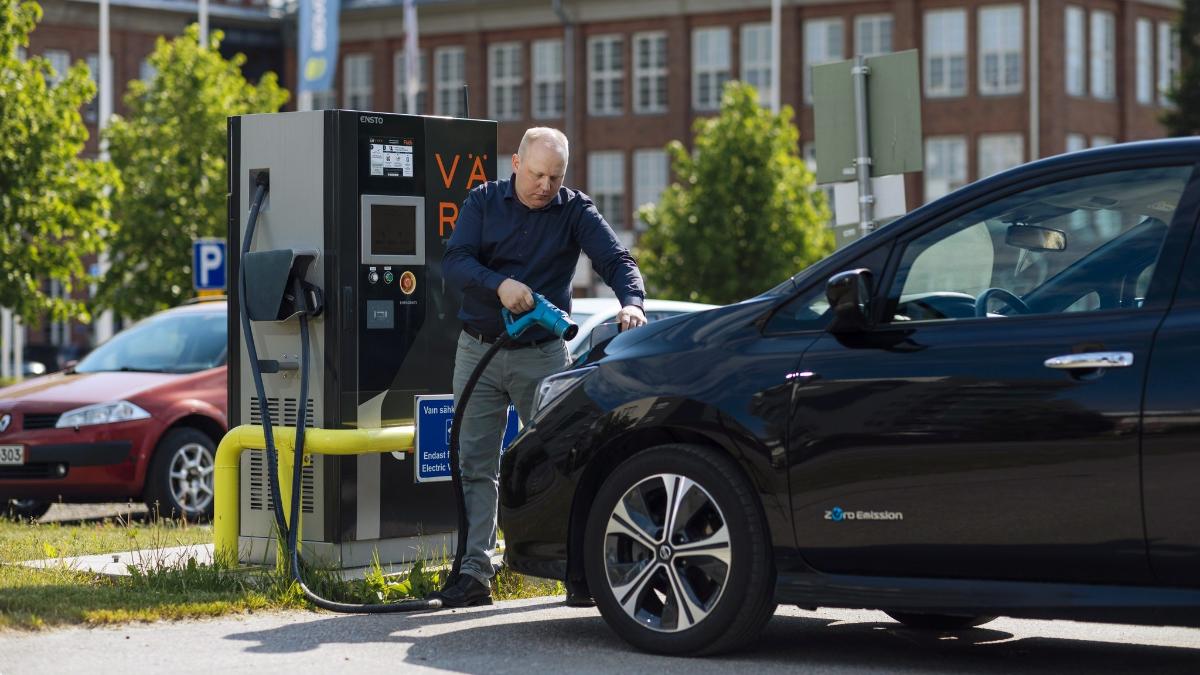Programme for alternative transport fuels distribution infrastructure to be circulated for comments

The Ministry of Transport and Communications requests statements on the draft national programme on alternative transport fuels distribution infrastructure. Comments can be submitted until 8 September 2024.
The national programme on alternative transport fuels distribution infrastructure contains an updated assessment of the development of distribution infrastructure and market for fuels other than fossil fuels in road, rail, maritime and air traffic. The programme sets objectives and presents measures that will promote the achievement of the objectives.
The programme will promote the implementation of the AFIR Regulation and be the basis for monitoring required by the Regulation. The EU reached an agreement on the AFIR Regulation on 25 July 2023. The EU Regulation on the deployment of alternative fuels infrastructure i.e. the AFIR Regulation contains requirements for a minimum level of deployment infrastructure and requires the preparation of a national infrastructure deployment programme.
The improvement of a distribution network for alternative fuels is a key to transition to clean energy in transport. According to the Government Programme of Prime Minister Petteri Orpo, a plan for the implementation of the expansion of the alternative fuels distribution network on the main routes will be prepared.
The progress of the transition to alternative fuels varies between different modes of transport
The transition to alternative fuels in transport is affected by the availability and price of new fuels and the construction of distribution infrastructure. The rate of renewal of vehicles will determine the demand for new fuels.
The charging infrastructure for passenger cars and vans has developed favourably in Finland, and large steps forward have been taken in meeting the requirements of the EU Regulation on the deployment of alternative fuels infrastructure. The challenge is also to ensure the construction of infrastructure for the low-volume routes of the comprehensive TEN-T network and other main roads. Infrastructure for heavy goods road transport is still mainly private.
In particular, biofuels and synthetic fuels, hydrogen or electricity will likely be used as energy sources for waterborne transport in the Baltic Sea region in the near future. Approximately four per cent of vessels in the Finnish merchant fleet used at least one alternative source of power or fuel as part of their fuel solution in 2023. The corresponding figure of Finnish merchant fleet vessels operating abroad was 22 per cent.
In aviation, the transition to alternative fuels is in its early stages. Electricity and hydrogen are not yet used in commercial air traffic in Finland. Bio-based sustainable aviation fuels are expected to play an important role in the future, especially in reducing emissions from long-distance aviation.
In addition to road traffic infrastructure, the AFIR Regulation imposes obligations on shore-side electricity supply at airports and ports. The AFIR Regulation does not set binding targets for rail traffic, but does require situational descriptions, objectives and a description of measures in the same manner as for other modes of transport. The electrification of tracks and use of electric locomotives is one of the key measure that reduces emissions from rail traffic.
EU funding should be utilised in the development of charging infrastructure
The aim of the measures in the draft programme is to find cost-effective solutions for the development of the distribution infrastructure that will serve traffic needs. One aim is to make full use of EU funding opportunities in the development of distribution infrastructure.
The draft programme was drawn up on the basis of the road traffic distribution infrastructure programme published by the Ministry of Transport and Communications in March 2023, studies by the Finnish Transport and Communications Agency and the Finnish Transport Infrastructure Agency, and workshops conducted with stakeholders in early 2024. Cooperation with the update of the National Transport System Plan has also been taken into account in preparation.
What next?
The deadline for submitting comments is 08 September 2024. Comments may be submitted by all organisations and private individuals at www.lausuntopalvelu.fi.
After the round of statements, the programme will be finalised. The programme must be submitted to the European Commission by 31 December 2024.
Inquiries:
Tuuli Ojala, Senior Ministerial Adviser, tel. +358 50 563 8130, [email protected]
Eero Hokkanen, Ministerial Adviser, tel. +358 295 342 021, [email protected] (water transport)
Niina Honkasalo, Ministerial Adviser, tel. +358 295 342 027, [email protected] (air traffic)
Press release 08 November 2023: Preparations begin for a distribution infrastructure programme for alternative transport fuels
Government project website: National programme for distribution infrastructure for alternative fuels in Finland